Trentin benefits from Brambilla's teamwork in Pinerolo
Etixx-QuickStep claim fourth stage win of Giro d'Italia
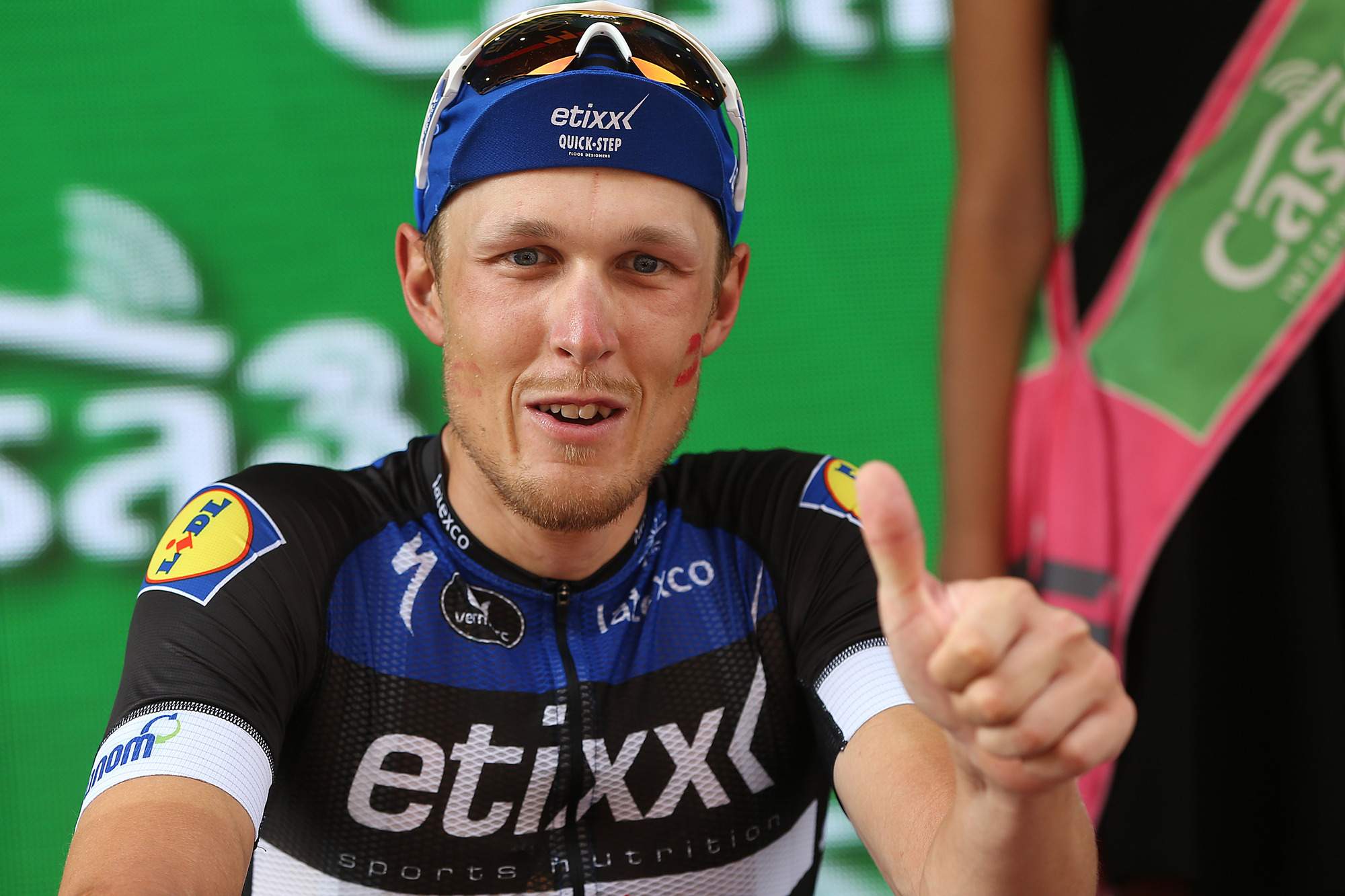
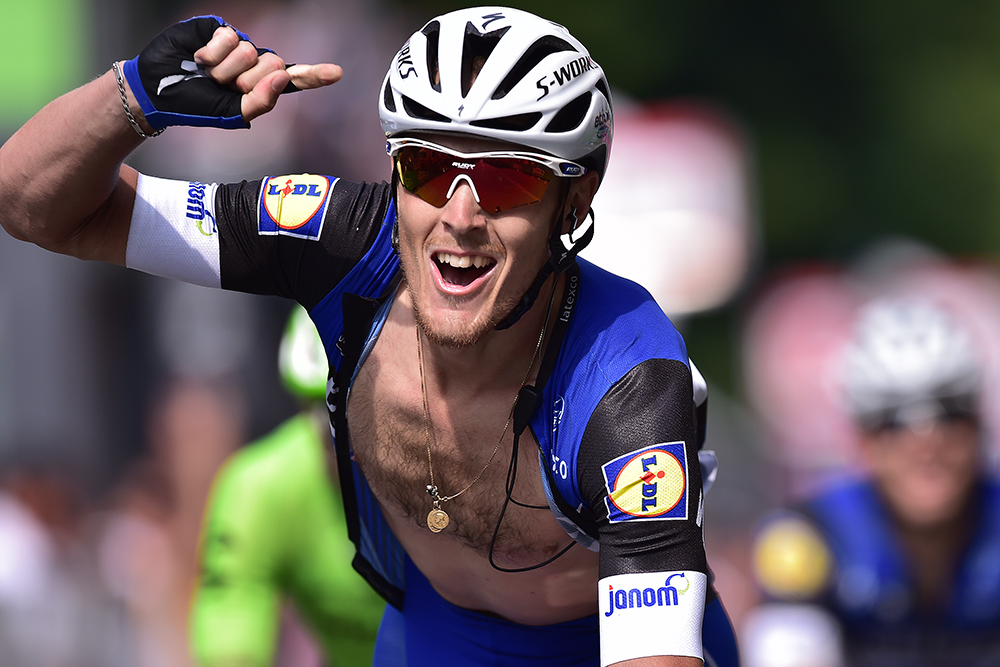
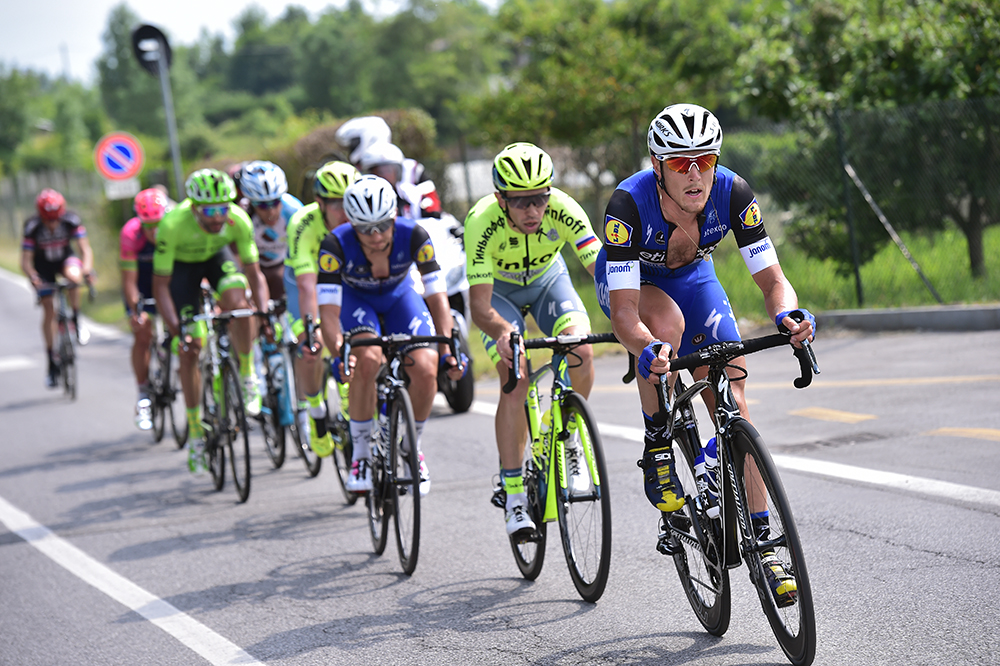
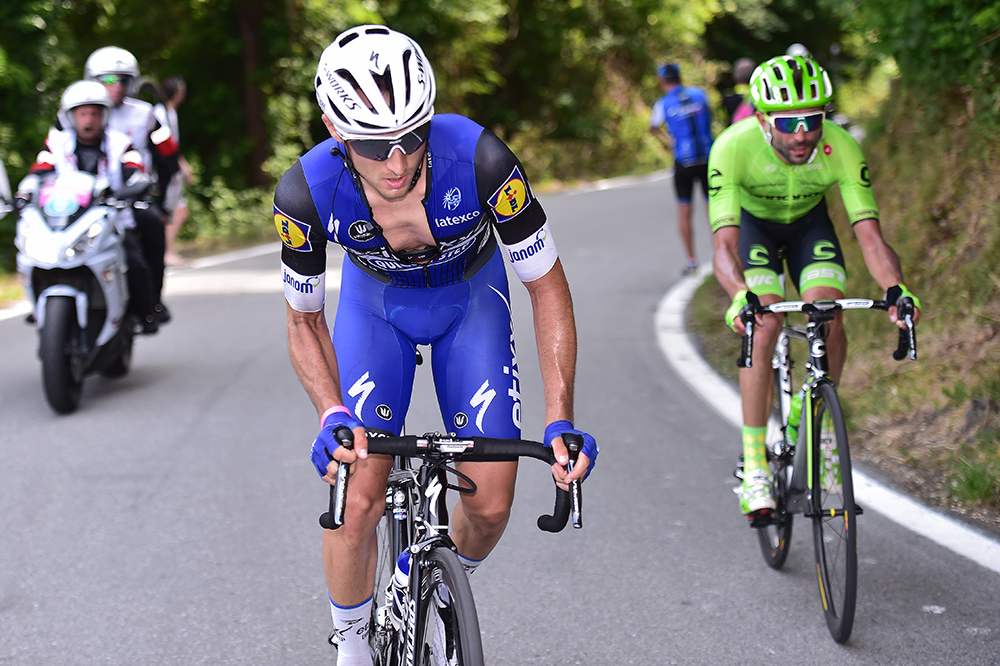
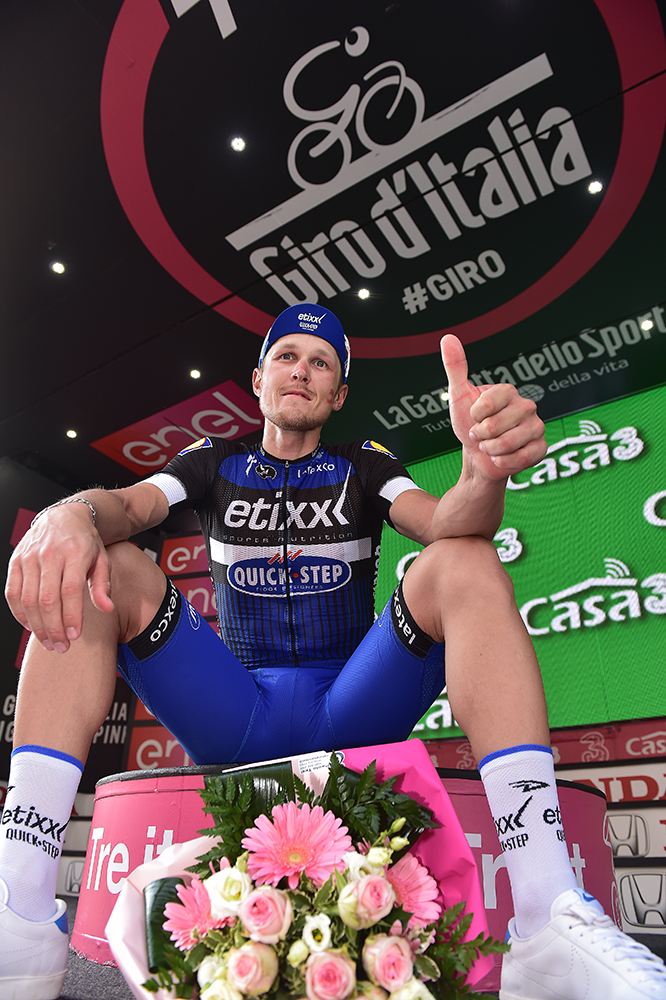
When Gianluca Brambilla forged clear from the day's break on the climb of Pramartino with only Moreno Moser (Cannondale) for company, and after they had bludgeoned out a score draw on the short, cobbled ascent of San Maurizio, it seemed certain that stage 18 of the Giro d'Italia would be decided in a two-up sprint.
Little did Moser realise as they dropped into Pinerolo, however, that a third man was on the cusp of re-entering the reckoning. When Brambilla refused to take any more turns on the front on the descent, Moser initially mistook his actions for gamesmanship, not realising that he was laying the groundwork for teammate Matteo Trentin to latch back on.
"I had the information over earpiece, but I wasn't only listening to it, I looked back a few times too and I could see that Matteo was coming up," Brambilla said after the finish. "In a two-up sprint I normally look to be in front, but I stayed second wheel this time and I never even opened my effort because I was waiting for Matteo to come back on."
Like Moreno Argentin catching and then bolting past Stephen Roche and Claude Criquielion in the finale of the 1987 Liège-Bastogne-Liège, Trentin didn't stand on ceremony when he caught Moser and Brambilla with 150 metres remaining. He burst straight past and – jersey still flapping open – punched the air in triumph, while Brambilla crossed the line in third with his arms raised.
"I started to believe I could win at 350 metres to go when I saw they weren't sprinting," Trentin said. "Once I managed to get up to them, I just carried right on, I didn't ride a metre with them."
For the final 10 kilometres of the stage, the television cameras focused almost exclusively on the duel between Brambilla and Moser, which made for gripping viewing in and of itself. "We hammered each other on the last climb, but neither of us gave in," Brambilla said. "But I must have hurt his legs because Matteo was able to get back on."
When Trentin sat down in his post-stage press conference, he was asked to fill in the gaps from the television coverage and explain how precisely he had managed to close the gap to the two leaders in the finale.
The latest race content, interviews, features, reviews and expert buying guides, direct to your inbox!
"My objective was to get to the top of Pramartino with a manageable gap, and I think it was around 40 seconds in the end," Trentin said. "Then I did a good descent to catch up to Arndt, Modolo and Rovny. On the cobbled climb, I could see they weren't any stronger than me so I attacked, and got about 10 seconds clear of them.
"Then over the top, I heard on the radio that they were telling Gianluca: ‘Don't pull, Matteo's coming up.' I'm not sure if they even saw me coming up in the end. I haven't spoken to Gianluca yet, but I think it was like that."
Classics future
The victory was Trentin's first at the Giro, though his palmarès already includes two stages at the Tour de France, in 2013 and 2014, as well as last year's Paris-Tours, when he claimed the Ruban Jaune for the fastest-ever Classic victory for good measure.
To date in the Spring Classics, however, Trentin has largely played a supporting role, though it is notable that he has been part of QuickStep's Tour of Flanders team since his neo-professional season in 2012. Still only 26 years of age, the Trentino native still has ample margin for improvement.
"Even if we take away Tom [Boonen] and [Fabian] Cancellara, there's a small group that's been up there with them for four or five years and I have a bit of work to do if I'm going to join that club," Trentin said.
"I did twenty days at altitude before Tirreno-Adriatico this year and I felt good in the Classics but I was missing something when the race exploded. But I needed two or three years to emerge as an amateur, and that's even more the case with the professionals.
"Apart from a fuoriclasse like Sagan, who was up there straight away, riders need time to develop. Look at Greg Van Avermaet, it took him a long time to get there. You have to work on small details from year to year."
Back at the finish line, meanwhile, Brambilla was generous in praising his teammate, insisting that his own contribution should not be overstated. "Don't say I sacrificed a win because that takes away from what Matteo did," Brambilla said. "Matteo made a great chase and a great sprint. It was a real finisseur's effort."

Barry Ryan was Head of Features at Cyclingnews. He has covered professional cycling since 2010, reporting from the Tour de France, Giro d’Italia and events from Argentina to Japan. His writing has appeared in The Independent, Procycling and Cycling Plus. He is the author of The Ascent: Sean Kelly, Stephen Roche and the Rise of Irish Cycling’s Golden Generation, published by Gill Books.